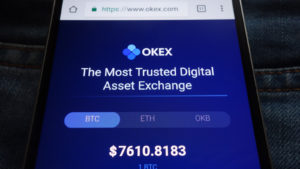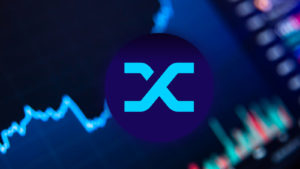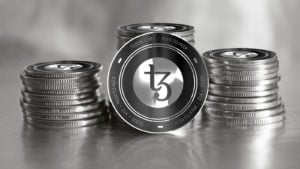InvestorPlace - Stock Market News, Stock Advice & Trading Tips
Cryptos have gained some of their allure back in August. However, many of them are still off the record highs seen earlier in the year. Given the recent positive momentum in digital assets, I have 10 cryptos you might not know about yet that need to be on your radar, as they could bring enticing returns to your portfolio.
Regular InvestorPlace readers would be well familiar with Bitcoin (CCC:BTC-USD) and Ethereum (CCC:ETH-USD) as the two most important cryptocurrencies. Their market capitalizations (caps) stand at $937 billion and $389 billion, and the two make up over half of the total crypto market cap of $2.15 trillion. There are currently over 11,000 cryptos tracked by CoinMarketCap, a number that has grown substantially over the years.
Despite the declines in the second quarter of the year, many widely-followed cryptos have seen amazing returns so far in 2021.
For example:
- Bitcoin is up about 70% year-to-date (YTD);
- Ethereum is up over 350% YTD;
- Dogecoin (CCC:DOGE-USD) is up almost 5,500% YTD;
- and Ripple (CCC:XRP-USD) is up around 426% YTD.
By comparison, the S&P 500 Index has returned about 19% and NASDAQ-100 is up 14% so far in 2021. Thus it is not difficult to see why many investors want to catch the up moves in cryptos.
However, such returns also make these digital assets extremely volatile, especially in the short run. Therefore, altcoins may not be appropriate for all portfolios.
With that information here’re ten cryptos to research further as bulls could return to the market:
- Crypto.com Coin (CCC:CRO-USD)
- Decred (CCC:DCR-USD)
- OKB (CCC:OKB-USD)
- Polkadot (CCC:DOT-USD)
- Kusama (CCC:KSM-USD)
- Quant (CCC:QNT-USD)
- Synthetix Network Token (CCC:SNX-USD)
- Tezos (CCC:XTZ-USD)
- The Graph (CCC:GRT-USD)
- Wrapped Bitcoin (CCC:WBTC-USD)
Cryptos to Buy: Crypto.com Coin (CRO-USD)

Source: Stanslavs / Shutterstock.com
52-Week Range: 5.38 cents – 27.1 cents
Launched in December 2018 by Kris Marszalek, Crypto.com is a payment and cryptocurrency platform. In other words, an individual could buy, sell, trade, spend, store or even pay bills with digital assets on the platform.
Its app has had about 10 million downloads. Individuals can earn up to 8.5% per annum (p.a.) on their crypto deposits. Users can also get a prepaid Visa card that functions like a rewards debit card. CRO-USD is the native token of the platform.
Meanwhile, the Crypto.com Chain protocol is an open-source and permissionless blockchain. The organization suggests it “will make the transaction flows between crypto users and merchants accepting crypto seamless, cost-efficient and secure,” and supports “innovative projects, including Payment and DeFi initiatives.” CRO-USD owners can stake their coins on Crypto.com Chain.
CRO started 2021 around 6 cents. Now it trades at nearly 16 cents. Just in the past month, it is up about 38%. With a market cap of around $4 billion, it is among the top 40 altcoins.
Decred (DCR-USD)

Source: Ivan Babydov / Shutterstock.com
52-Week Range: $10.99 – $250.02
Launched in February 2016, Decred uses a hybrid Proof-of-Work (PoW)/Proof-of-Stake (PoS) consensus algorithm. As many of our readers would know, Bitcoin uses PoW and Ethereum is currently moving from PoW to PoS. On a side note, “Server owners on PoS systems are called ‘validators’ — not ‘miners.’ They put down a deposit, or ‘stake’ a large amount of cryptocurrency, in exchange for the right to add blocks to the blockchain.”
This hybrid consensus algorithm means that “when new blocks are mined, 60% of the block reward goes to proof of work miners, 30% to proof of stake voters, and 10% to fund development of the protocol.”
The Decred community approves all transactions and changes made regarding the protocol. Hence, it is not possible for big Decred holders to manipulate the operation of the protocol. Decred also created a proposal system and dedicated voting platform, called Politeia, which allows users to participate in votes, submit proposals and start discussions.
DCR started 2021 a bit $42. Now it is about $174. In the past month, it is up about 36%. With a market cap of $2.3 billion, it is among the top 60 altcoins.
Cryptos to Buy: OKB (OKB-USD)

Source: Piotr Swat / Shutterstock.com
52-Week Range: $4.01 – $44.17
OKEx is a crypto exchange, registered in Seychelles. The OKEx exchange is similar in many aspects to other digital asset exchanges. But the platform also has its own cloud mining service.
Launched in early 2017 by Jay Hao, OKB is the utility token that enables users to access the exchange’s special features. The altcoin is used to calculate and pay trading fees, grant users access to governance rights, and reward users for holding OKB.
The organization also claims to keep the value of OKB high by burning “OKB tokens regularly to reduce supply. This boosts the value and encourages you to hold tokens … Every 3 months, we burn tokens by sending them to a burning address that nobody can access. You can check reports after each burning.”
OKB started 2021 around $8.90. Now it trades at $21.68. In the past month, it is up about 53%. With a market cap of $1.3 billion, it is among the top 90 altcoins.
Polkadot (DOT-USD)

Source: shutterstock.com/nurionstd
52-Week Range: $3.62 – $49.69
Polkadot was founded by the Web3 Foundation as a multichain protocol. It aims to “facilitate intercommunication between multiple blockchains through the use of independent parallel chains that communicate through a core blockchain, which is responsible for consensus and security.”
As a result, the cross-chain transfer of any data or asset types is possible, not just tokens. And blockchains can become interoperable with each other. The platform runs on a PoS protocol, which is regarded as more environmentally-friendly than PoW.
Polkadot’s native token DOT is used for providing network governance, making transactions, and creating parachains (parallel chains) by bonding. DOT started 2021 around $9. Now it trades at $27.88. In the past month, it is up about 101%. With a market cap of $27.6 billion, it is among the top 10 digital assets.
Cryptos to Buy: Kusama (KSM-USD)

Source: Shutterstock
52-Week Range: $17.30 – $623.75
Launched in December 2019 by the same team of creators for Polkadot, Kusama is the experimental version of Polkadot. It offers an interoperable and scalable framework for developers.
The platform is designed to provide a testbed for developers looking to deploy their own blockchain, who can use the platform to test their ideas. Some regard it as a preparatory network before launching themselves on Polkadot. Once developers feel early versions of their projects are ready to gain more traction, they move them to Polkadot.
KSM started 2021 around $68. Now it trades at $326. In the past month, it is up about 74%. With a market cap of $2.76 billion, it is among the top 60 altcoins.
Quant (QNT-USD)

Source: Zeedign.com / Shutterstock.com
52-Week Range: $6.69 – $202.40
Launched in June 2018 by Gilbert Verdian, Quant “is a protocol facilitating interoperability between various types of distributed ledger technologies (DLT) including blockchain.” Quant aims to connect blockchains and networks globally, without decreasing the efficiency and interoperability of the network.
According to RAND Europe, “DLT/Blockchain refers to a type of database which is spread over multiple locations (i.e. a distributed database) and which can be used like a digital ledger to record and manage transactions.”
Quant’s operating system, Overledger, is a gateway for any blockchain-based project to access all other blockchains. When different DLTs in different locations need to communicate, they rely on Overledger.
QNT started 2021 around $11. Now it trades at around $185. In the past month, it is up about 121%. With a market cap of $2.2 billion, it is among the top 70 altcoins.
Cryptos to Buy: Synthetix Network Token (SNX-USD)

Source: Ivan Babydov / Shutterstock.com
52-Week Range: $2.48 – $28.77
Launched in September 2017 by Kain Warwick, Synthetix is a decentralized finance (DeFi) protocol. It regards its role as being “the backbone for derivatives trading in DeFi, allowing anyone, anywhere to gain on-chain exposure to a vast range of assets,” both crypto and non-crypto.
The protocol is based on the Ethereum blockchain and offers users access to highly liquid synthetic assets (synths), which would be derivatives in finance. These synths “track and provide the returns of another asset without requiring you to hold that asset.”
SNX tokens are used as collateral for the synthetic assets minted. The crypto started 2021 around $8. Now it trades at $13.70. In the past month, it is up about 57%. With a market cap of $1.58 billion, it is among the top 80 altcoins.
Tezos (XTZ-USD)

Source: RuskaDesign via Shutterstock
52-Week Range: $1.64 – $8.40
Launched in September 2018 by Arthur Breitman, Tezos is another PoS blockchain-based smart contract platform. Its implementation “is designed as a multi-layer software. A peer-to-peer layer ensures the connectivity with many other nodes and passes the received messages to the next layer that sees this network as a distributed database.” Then comes the economic protocol layer that implements the consensus.
Its on-chain governance mechanism enables Tezos to adopt new features natively and evolve. Put another way, it is a “self-amending” blockchain.
XTZ, the native currency, started 2021 around $2. Now it trades at $4.25. In the past month, it returned over 58%. With a market cap of $3.6 billion, it is among the top 45 altcoins.
Cryptos to Buy: The Graph (GRT-USD)

Source: Ivan Babydov / Shutterstock.com
52-Week Range: 14 cents – $2.88
Launched in December 2020 by Yaniv Tal, The Graph “is an indexing protocol for querying networks like Ethereum.” Some are calling it the Google — parent company Alphabet (NASDAQ:GOOG, NASDAQ:GOOGL) — of blockchains.
In other words, “Just as Google indexes the web, The Graph indexes blockchain data from networks like Ethereum and Filecoin. This data is grouped into open APIs called subgraphs that anyone can query.”
Many altcoin enthusiasts follow network growth metrics released by IntoTheBlock. For The Graph, earlier in the year, IntoTheBlock revealed a “particularly significant” increase in new addresses. “A surge in the new addresses joining the network has always been a bullish signal for both the project and the token’s future value.”
GRT started 2021 around 36 cents. Now it trades at $1.02. In the past month, it is up about 85%. With a market cap of $5.06 billion, it is among the top 35 digital coins.
Wrapped Bitcoin (WBTC-USD)

Source: Vladimir Kazakov / Shutterstock.com
52-Week Range: $9,924 – $64,796
Launched in January 2019, Wrapped Bitcoin is a tokenized version of Bitcoin that operates on the Ethereum blockchain. In other words, the platform standardizes Bitcoin to the ERC20 format to create smart contract for Bitcoin.
According to SoFi Technologies (NASDAQ:SOFI), Wrapped Bitcoin “exists as an ERC-20 token that is backed by Bitcoin (BTC) at a 1:1 ratio. Put simply, Wrapped Bitcoin provides interoperability between Bitcoin and Ethereum.”
WBTC-USD started 2021 around $29,000. Now it trades at $49,500, the same price as Bitcoin: “as a smart contract algorithm reproduces its price in real time and regulates the underlying fund with supply and demand information gleaned from user transactions.” Just in the past month, WBTC is up about 46%. With a market cap of $9.6 billion, it is among the top 20 altcoins.
On the date of publication, Tezcan Gecgil did not have (either directly or indirectly) any positions in the securities mentioned in this article.
Tezcan Gecgil, Ph.D., has worked in investment management for over two decades in the U.S. and U.K. In addition to formal higher education in the field, she has also completed all three levels of the Chartered Market Technician (CMT) examination. Her passion is for options trading based on technical analysis of fundamentally strong companies. She especially enjoys setting up weekly covered calls for income generation.
The post 10 Little Known Altcoin Cryptos That You Should Check Out appeared first on InvestorPlace.
The views and opinions expressed herein are the views and opinions of the author and do not necessarily reflect those of Nasdaq, Inc.


